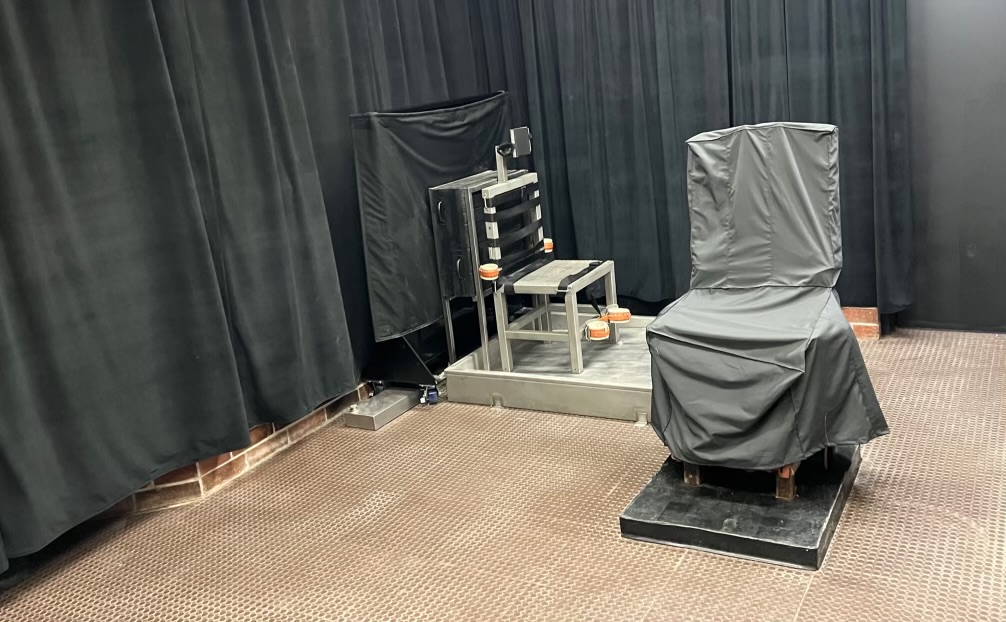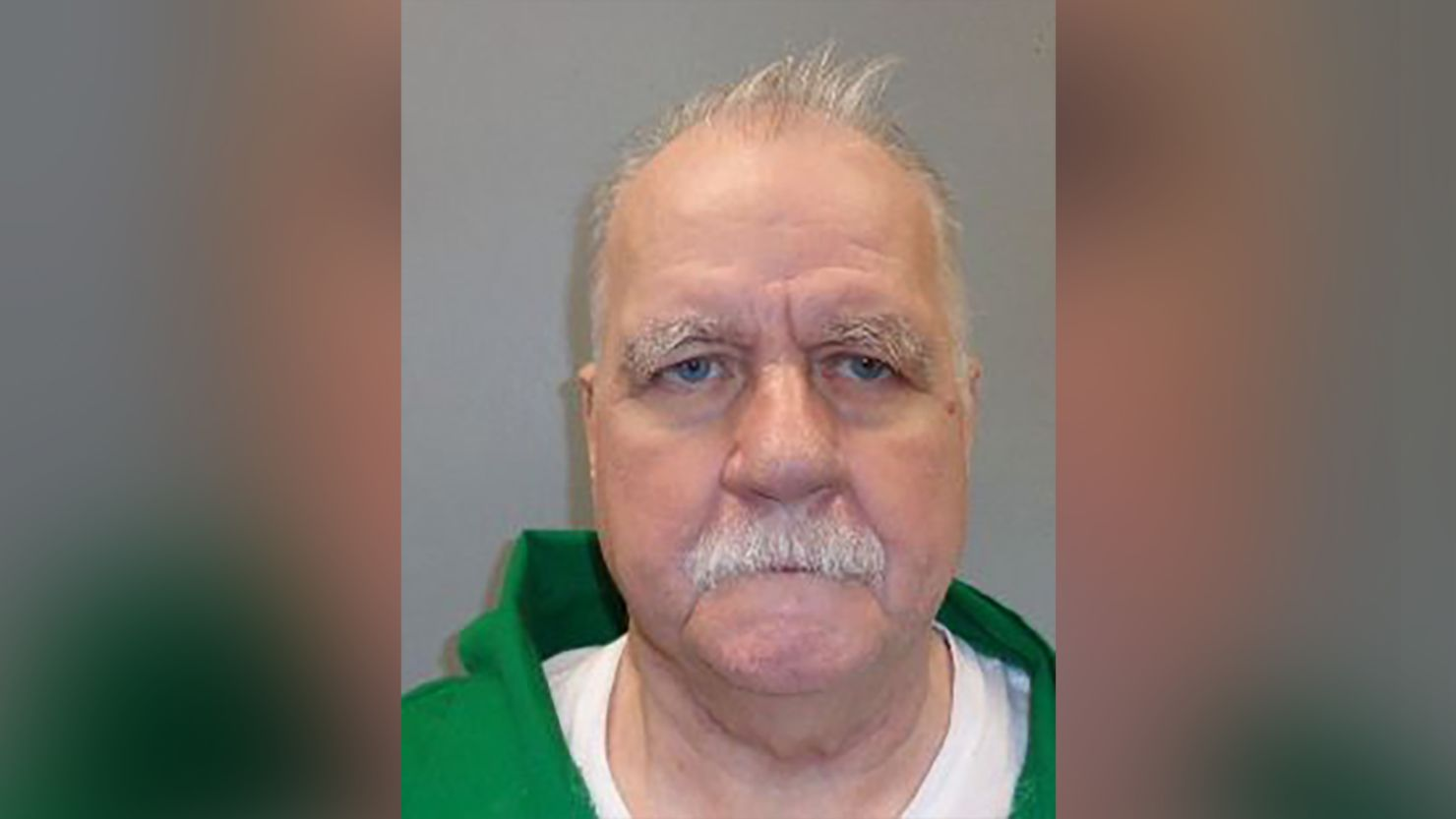Brad Sigmon, a 67-year-old death row inmate in South Carolina, has chosen to be executed by firing squad, marking the first time in 15 years that capital punishment in the United States will be carried out by gunfire.
Sigmon’s decision comes amid growing concerns over the cruelty of lethal injections, which have reportedly caused prolonged and excruciating suffering for previous inmates. His case highlights the ongoing debate over execution methods, human rights concerns, and the state’s approach to capital punishment.
The Revival of Firing Squad Executions in South Carolina
South Carolina has resumed executions after a 13-year hiatus, reviving old methods like the electric chair and firing squad due to difficulties in obtaining lethal injection drugs.
The state now requires inmates to choose their method of execution, and if they refuse to decide, they are automatically subjected to electrocution. Sigmon’s choice of a firing squad was influenced by legal challenges and reports of botched lethal injections, which have led to painful and prolonged deaths.
Executions in the state had been on hold since 2011 due to the unavailability of lethal injection drugs, as pharmaceutical companies stopped supplying them for capital punishment.
However, a new law passed in 2023 now allows South Carolina to keep its drug suppliers anonymous, enabling the state to resume lethal injections. Despite this, Sigmon and other inmates have raised concerns over the safety and reliability of these drugs, pushing them to opt for alternative execution methods.
Read : 21-Year-Old Harrison Jones Drives 11 Hours to Set Fire at Home of Man Talking to His Ex-Girlfriend
The state’s firing squad execution protocol involves strapping the condemned individual to a chair, placing an aim point over their heart, and covering their head with a hood. Three riflemen stand behind a wall, 15 feet away, and fire simultaneously.
Read : Air India Becomes World’s No. 1 Airline in Losing Luggage: 50,001 Bags Lost in Last 30 Days
If the inmate shows signs of life 10 minutes after the first shots, a second round of bullets is administered. In 2022, a South Carolina judge ruled that this method constitutes “torture” and could cause excruciating pain, but the state’s supreme court later upheld it as a legal execution method.
Concerns Over Lethal Injections and Electric Chair Executions
Sigmon’s decision to face the firing squad rather than lethal injection or electrocution reflects widespread concerns about the state’s execution methods.
The last three executions in South Carolina were carried out using pentobarbital, a sedative that has been linked to severe suffering. Legal experts and medical professionals have pointed out that the drug can cause a sensation similar to drowning, as it leads to pulmonary edema—a condition where fluid fills the lungs, causing intense suffocation.
Recent executions in South Carolina have only intensified these concerns. Autopsy reports from the execution of Richard Moore in November 2024 suggested that officials administered a second dose of pentobarbital 10 minutes after the first, despite the state’s protocol stating that only a single dose should be used.

Similarly, the execution of Marion Bowman in January 2025 lasted 23 minutes, and state officials refused to disclose whether multiple doses were given. Critics argue that the secrecy surrounding lethal injection protocols violates inmates’ rights and increases the risk of inhumane deaths.
Electrocution, another available option in South Carolina, has its own history of horrific botched executions. Inmates have suffered prolonged agony due to equipment malfunctions and improper electric currents, leading to extreme burns and slow deaths.
These risks have led some prisoners, including Sigmon, to perceive the firing squad as a more reliable and quicker method of execution, despite its violent and controversial nature.
Sigmon’s legal team argues that he has been forced into making an uninformed choice between three painful methods of execution.
His attorney, Gerald “Bo” King, expressed frustration over the lack of transparency surrounding South Carolina’s execution procedures, stating that inmates should at least have access to accurate information about the methods they are being forced to choose between.
The Moral and Legal Debate Surrounding Sigmon’s Execution
Sigmon’s case has reignited the debate over capital punishment in the United States, with human rights groups and legal experts questioning the ethical implications of executing prisoners in such a brutal manner.
The Death Penalty Information Center has warned that the visual impact of a firing squad execution could shock the public, making it clear that capital punishment is an intentional act of violence carried out by the state.
At a national level, the issue of execution methods remains highly controversial. Former President Donald Trump has advocated for expanding the use of capital punishment and ensuring that states have the necessary drugs to carry out executions.
Meanwhile, some states, like Alabama, have introduced new methods such as nitrogen hypoxia, a form of suffocation that human rights groups argue is equivalent to torture.
South Carolina’s decision to resume executions using outdated and highly controversial methods has also drawn criticism from legal professionals.

A judge previously ruled that the firing squad method was unconstitutional due to the prolonged suffering it could inflict, yet the state’s supreme court later overturned this decision. This highlights the deep divisions within the judicial system regarding what constitutes cruel and unusual punishment.
Beyond the legal arguments, Sigmon’s case also raises questions about rehabilitation and redemption. His legal team has emphasized that he has shown deep remorse for his actions, spending his time in prison in prayer and self-reflection.
His lawyers argue that executing him serves no real purpose other than to send a message that South Carolina does not recognize the possibility of redemption, regardless of how much a person has changed.
Sigmon was convicted in 2001 for the brutal murders of his ex-girlfriend’s parents, a crime he admitted to in court. His legal team has since argued that his violent actions were the result of a traumatic childhood, severe mental illness, and brain injuries that were never properly diagnosed or treated. They maintain that the failure to present this evidence during his trial deprived him of a fair sentencing process.
Despite these appeals, South Carolina officials remain committed to carrying out his execution on March 7, 2025. If the execution proceeds, Sigmon will become the oldest person ever executed in the state’s history.
His case will also set a precedent for future death row inmates in South Carolina and across the country, as more states consider reviving firing squads amid ongoing legal battles over lethal injection drugs.
As Sigmon’s execution date approaches, human rights organizations, legal experts, and the general public continue to debate the morality of capital punishment. The case serves as a stark reminder of the brutal reality of the death penalty and the difficult choices that inmates must make when faced with execution.
Whether the firing squad represents a more humane alternative to lethal injection and electrocution remains a deeply divisive question—one that will likely remain at the center of legal and ethical discussions for years to come.

